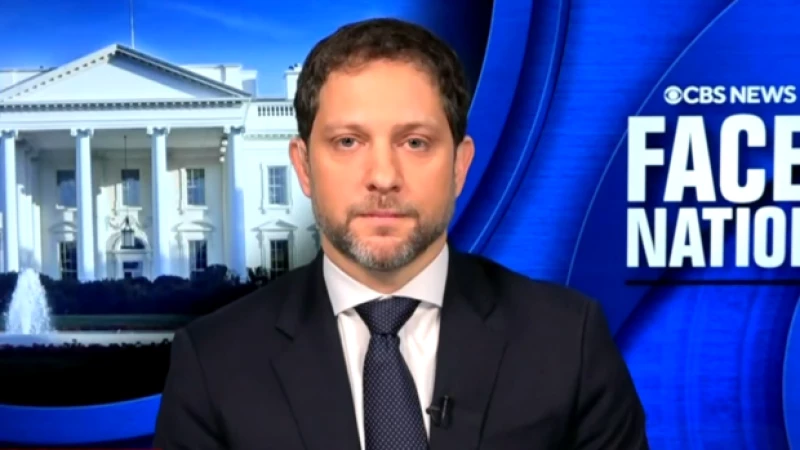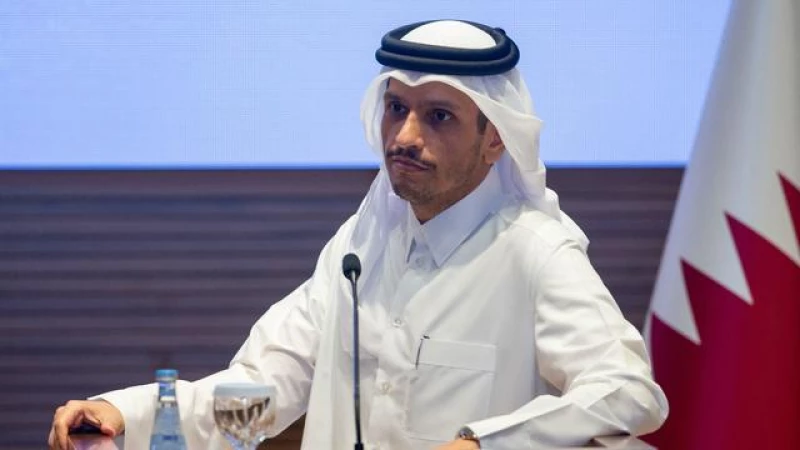Negotiators are edging closer to reaching a deal with Hamas to release an initial 50 civilians in exchange for Israel allowing in more aid, including fuel. This comes as a temporary halt in fighting takes place, according to multiple sources.
While there is no finalized agreement at this stage, there is a written draft agreement being circulated among the parties involved. These talks have been described as very challenging and are being mediated with the assistance of the U.S. and Qatar, according to two sources.
During an interview on "Face the Nation with Margaret Brennan," White House deputy national security advisor Jon Finer stated that "many areas of difference that previously existed" in the hostage negotiations "have been narrowed down." He also mentioned that the U.S. is now closer than ever to reaching a final agreement.
According to a press conference held in Doha on Sunday, Qatar's Prime Minister Mohammed bin Abdulrahman bin Jassim Al Thani stated that the remaining obstacles to the potential agreement between Israel and Hamas were "very minor" logistical issues. He expressed optimism that the parties were nearing a resolution.
Sources familiar with the talks have said there are several recent complicating issues surrounding the hostage situation in Gaza. One of the issues is whether overhead surveillance would happen during the releases. Israel has also demanded that Hamas provide some accounting for the captives it holds or can obtain from other militant groups such as Islamic Jihad. The total figure of more than 200 hostages remains just an estimate. Last week, two individuals who were believed to have been hostages, Noa Marciano and Yehudit Weiss, were found dead by the IDF near the al-Shifa hospital complex in Gaza. The remains of those killed during the October 7 attack in Israel are still being identified.
"Obviously, Gaza is an extremely dangerous place to be a civilian, to be a hostage held at this point," said Finer in an interview with CBS' Margaret Brennan. "So there is a time imperative."
Finer emphasized the urgency of the situation, stating that it should be resolved as soon as possible.

Israeli Prime Minister Benjamin Netanyahu recently spoke to CBS News' Norah O'Donnell and mentioned that Israel had "strong indications" that hostages were being held in al-Shifa hospital. This was one of the reasons cited for the Israeli Defense Forces' decision to enter the hospital. However, Netanyahu added that if there were hostages, they were no longer there.
The United States has not provided intelligence to confirm the assessment, but did issue downgraded intelligence last week. The intelligence stated that Hamas and Palestinian Islamic Jihad members operate a "command and control node" from al-Shifa hospital and tunnels underneath. It also mentioned that the facility has been used for both weapons and hostages.
Finer stated that the U.S. is still confident in its assessment and mentioned that the Israeli military is still gathering information from the al-Shifa facility.
Hostage Talks in the Middle East
On Saturday in Manama, President Biden's top Mideast adviser Brett McGurk described the ongoing hostage talks as intensive. He then headed to Doha for meetings with the Qatar Prime Minister later that night. In his public comments, McGurk supported Israel's call for the release of a "large number of hostages" in order to achieve a "significant pause in fighting" and a "massive" surge of humanitarian relief. He also acknowledged that Hamas has demanded fuel and humanitarian supplies as part of the negotiations. However, McGurk did not mention an earlier request by Hamas for the release of Palestinian women and children from Israeli detention centers.
"That's the bargain they set," McGurk stated from the beginning. He emphasized that it is Hamas's responsibility to release all of the hostages, including "the women, the children, the toddlers, the babies, all of them."
CIA director Bill Burns has returned to Washington but has remained involved in the negotiations after his meetings with the Mossad chief in recent weeks. President Biden himself has been actively engaged, making phone calls to Qatar's Emir on November 12th and as recently as Friday, indicating that a resolution is close.
Qatar is playing a mediating role through its relationship with Hamas, while the U.S. is assisting in brokering proposals. These proposals are being passed from a select group in Doha to Hamas leaders in Gaza and Israel's five-person war cabinet, led by Netanyahu.







